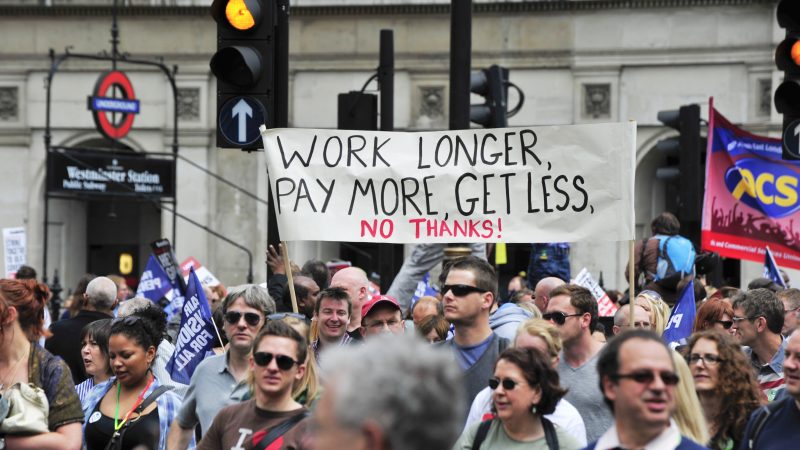
The government, you will be pleased to hear, has launched a scheme to tackle the cost-of-living crisis. It is called ‘Help for Households’ and it involves partnering with a range of businesses to provide discounts and offers from businesses including Asda, Sainsbury’s and Amazon.
Nobody is opposed to the kind of offers – which are mostly on food – that the scheme supports. But, at the end of the day there is no such thing as food poverty; there is just poverty. Fundamentally, anyone living in the UK today watching the cost of pretty much everything rise while wages stagnate knows that these kind of tinkering around the edges programmes will do nothing to meaningfully end the crisis. We know crumbs when we see them.
Help for Households, however, is worse than crumbs. In it, we see not just ministers’ failure to grasp the scale of the problem but their wilful misunderstanding of the problem’s cause. The cost-of-living crisis is in large part a profiteering crisis. It comes from oil and gas companies making obscene profits while household energy bills spiral; it comes from landlords putting up rents by an average of 11% in the last year (15.7% in London); it comes from companies like British airways fighting their workers’ demands for fair pay. As the saying goes: if someone has a vested interest in you believing that something is very complicated, it is probably very simple. Working people have less money not because there is suddenly less – they have less because someone else has it.
Unions are the best mechanism for protecting and improving workplace pay and conditions. In fighting for secure wages, they raise the floor for living standards for all. Sharon Graham of Unite has been forthright making the case that union action is about fair wages and that the much talked about wage-price spiral is the boogeyman of those whose interests are served by low wages. Prices are skyrocketing far beyond wages, and it is unions that recognise the scale of the issue- by, for example, making claims for pay rises tied to the Retail Price Index, rather than the usual demand for a set percentage increase – as UNISON has begun to do in local government.
The people who use food banks and who experience the poverty the Help for Households scheme seeks to alleviate are, very often, in work. Improving pay and working conditions through strengthening unions would, it follows, be in the interest of a government whose professed aim is to tackle the cost-of-living crisis. But the only meaningful action this government has taken to tackle the crisis – the windfall tax on energy companies – was brought in only after a concerted pressure campaign by Labour. The government’s response to recent industrial action and its crack downs on trade unions tell us everything we need to know about the sincerity of their interest in helping working people.
It is not unreasonable to claim that Amazon, whose involvement is front and centre in the government’s advertising of the Help for Households scheme, is the most powerful anti-union force in the world right now. It saw its profits triple over the pandemic, banking many billions of pounds and it is fighting its workers’ attempts to unionise tooth and nail. Amazon does not care about the cost-of-living crisis – how could it meaningfully claim to, when the man who owns the company is worth nearly 150bn dollars? It does not even seem to care about people’s lives.
Asda, another of the scheme’s partners, imposed contracts on its workers in 2017 that saw them lose pay for lunch breaks, be expected to work on bank holidays and lose flexibility in their working; workers could either sign, or be laid off.
On the day the Help for Households scheme was announced, Kwasi Kwarteng, the Business Secretary, also announced that the government would be making it legal for businesses whose workers take industrial action to hire temporary workers to break strikes. It is empowered unions and strong protections for renters and workers that could put a meaningful dent in the cost-of-living crisis. Instead, the government offers sticking plasters and launders the reputations of companies interested only in their bottom line, and actively attacks the power of those fighting for a better deal for working people.




More from LabourList
‘The Sherriff of Wild Westminster: what must change in elections bill’
‘The hope that kills you’: Reflections from the final day in Gorton and Denton
MPs, union leaders and organisations react to ‘bruising’ Gorton and Denton result